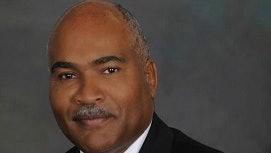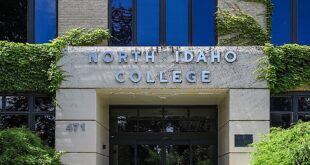The Unconstitutionality of Affirmative Action Admissions Programs
The recent Supreme Court’s decision in Students for Fair Admissions, Inc. v. President and Fellows of Harvard College and Students For Fair Admissions, Inc. v University of North Carolina declared affirmative action admissions programs unconstitutional at Harvard University and the University of North Carolina. The case is one of a series of cases that the Court has rendered that have diminished the rights of Blacks and other marginalized groups.
Questionable Standing of the Conservative Group
Some have questioned how the Students for Fair Admissions, Inc. vs. President and Fellows of Harvard College reached the Supreme Court in the first place. The question centers on whether the conservative group arguing the case had standing before the court. The conservative Students for Fair Admissions (SFFA) used a few Asians to bring the case before the Court even though no Asian students appeared before the Court to testify. This is an old and predictable tool used by those who oppress. They pit one oppressed people against other oppressed people to achieve their intended outcomes. Dr. Joseph H. Silver, Sr.
Dr. Joseph H. Silver, Sr.
Fallout on Higher Education
The fallout from this affirmative action case will impact all of higher education. The percentage of Black students in many of the major predominantly white universities is already in single digits. This recent ruling will hasten the decline in those numbers. Associate Justice Sonia Sotomayor in her dissenting opinion stated that “The devastating impact of this decision cannot be overstated.” She went on to say that “Today, this Courts stands in the way and rolls back decades of precedent and momentous progress.” States such as California, Washington, Idaho, Arizona, New Hampshire, Michigan, Nebraska, and Florida have already banned affirmative action in higher education. Several of these states saw decreases in minority student enrollment as a result of their actions. The expectation is that similar declines will be seen across the country. Access to admissions is being denied under the guise of trying to achieve a color-blind society. The reality of a color-blind society in this country is about as possible as it was to achieve the separate but equal doctrine under the Plessy vs Ferguson case. It will not happen. Associate Justice Brown stated “…deeming race irrelevant in the law does not make it so in life.” The irony is those who pushed for the ban of affirmative have in many cases benefited from affirmative action including white women, legacy admitted white students, and those who benefit from recruiting Black athletes. Some of same groups who rally against affirmative action are content to have Black students attend predominantly white institutions to play football, basketball, and other sports. This is hypocrisy in the highest order. Maybe when athletes push back on rulings like this one, we will see changes.
Collective Action in Higher Education
The American Association of Blacks In Higher Education (AABHE) has made a commitment to address the injustices in higher education impacting its membership. The affirmative action case is one of those injustices. If the higher education leaders do not push back on this case, then the suffering will be long-standing. The American Association of Blacks in Higher Education is poised to partner with other groups to take collective action. Posting position statements against the ruling is a first step. However, it should not be the only step. In this regard, the American Association of Blacks in Higher Education hosted a virtual Town Hall Meeting of likeminded organizations to develop an action plan to address the Court’s decision. The Town Hall Meeting was held on July 10, 2023, at noon.
Participating Organizations in the Town Hall Meeting
The following organization participated in the Town Hall Meeting along with the American Association of Blacks in Higher Education: The 100 Black Men of America, the National Urban League, The NAACP, the Divine Nine, United Negro College Fund (UNCF), the American Association of Hispanics In Higher Education and legal scholars.
Developing Strategies for Action
The organizations listed above shared information on how they mobilized their respective members after the Court issues its ruling. They also provided a set of strategies that can be used to address the fallout from the Court’s decision going forward. The strategies that were offered will be complied in a document and shared widely. The session was recorded and will be posted on the AABHE website and shared with all participating organizations. Other well-meaning groups are invited to join AABHE and the organizations that participated in the Town Meeting to develop next steps to combat the Court’s actions.
The Importance of Recruiting and Retaining Students of Color
Colleges and universities must show bold actions in recruiting and retaining students of color. Now is the time for colleges and universities to be vocal and open about their position on the need to have students of color among their student population. The country has a history of discrimination. Since 2016, that discrimination has been even more open and very visible. The things done under the cover of darkness in the past are now being done in broad daylight. There are now those in elected positions and the appointed positions who make their hate the law. This is where we are as a country, and the recent Supreme Court decision banning affirmative actions in college and university admissions is a clear example of this concern.
Predictability of the Outcome
On several levels, the outcome banning affirmative action in considering admission was very predictable. The genesis of this ruling has its roots in the 2016 presidential election. Those who chose to sit out the election for whatever reason, allowed for the elevation of a flawed man who demonstrated his disdain for the rule of law. Yet, in the power circles around the country, those flaws were overlooked because the pathway to conservative domination in the Supreme Court was very clear. With the addition of three ultra conservative judges recommended by the Federalist Society and approved by the Senate at that time, jurisprudence would take a turn for the worst for Blacks and other marginalized people. The action of the Court and that of state legislatures across the country have openly eroded voting rights, diversity, equity, and inclusion, women rights, and culturally relevant curriculum in primary and secondary schools and in colleges and universities. Now the Court has taken a stance on affirmation action in college admissions. The action is cause for great concern. Always remember, that not voting has consequences!
Dr. Joseph H. Silver is president, of Silver & Associates and wrote this commentary on behalf of the American Association of Blacks In Higher Education (AABHE).
 Mind Uncharted Explore. Discover. Learn.
Mind Uncharted Explore. Discover. Learn.

